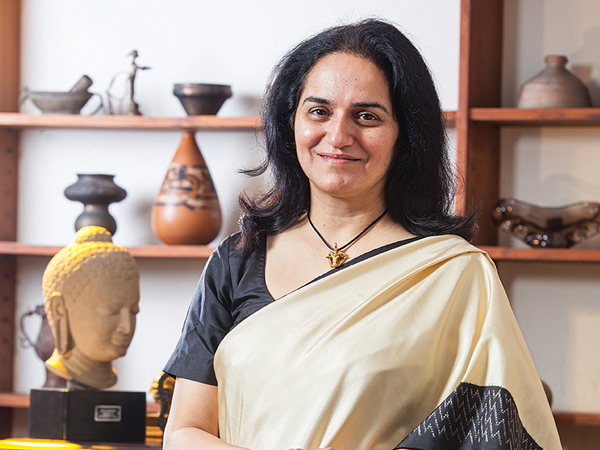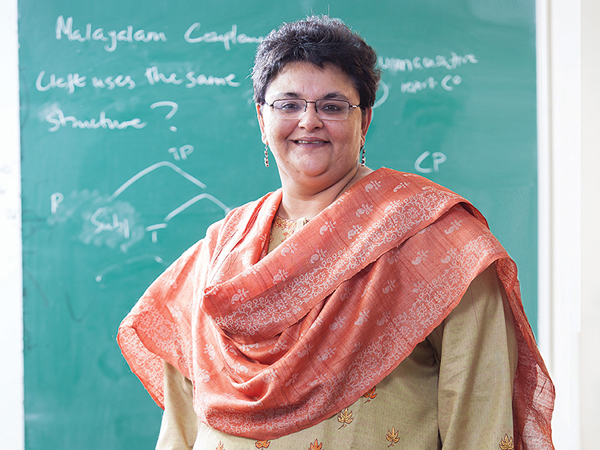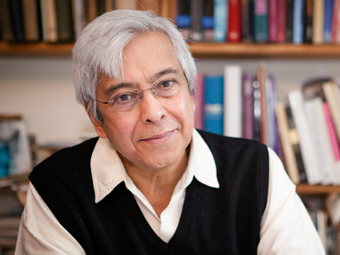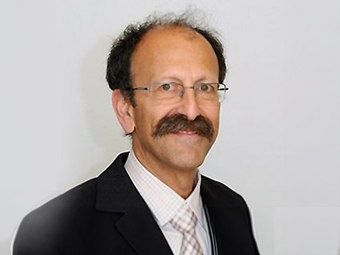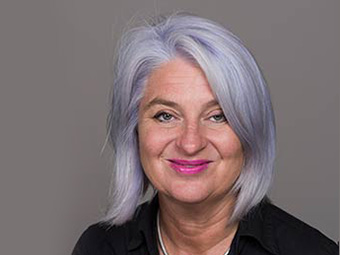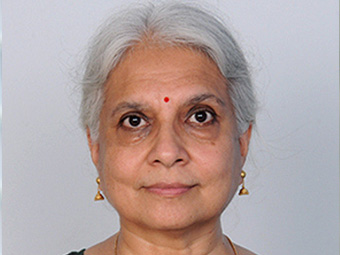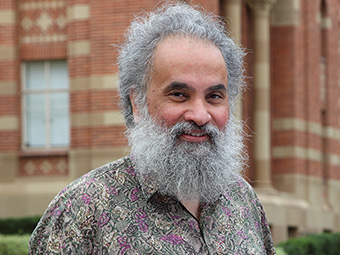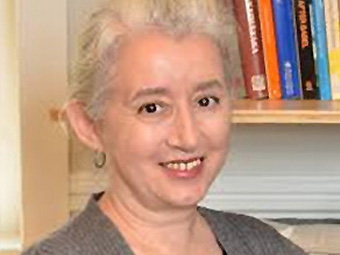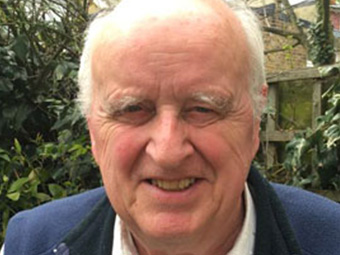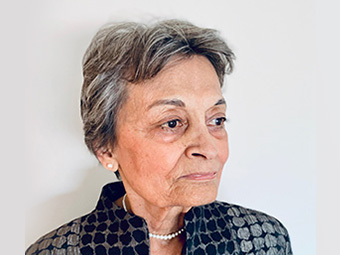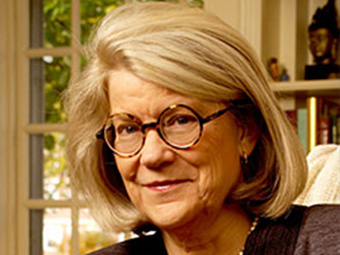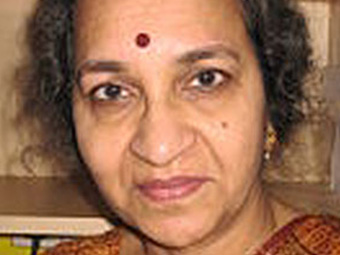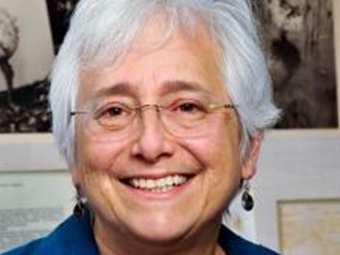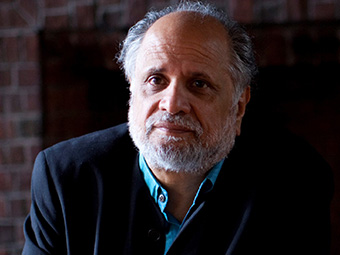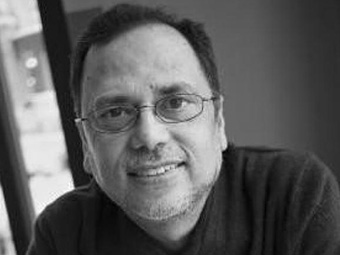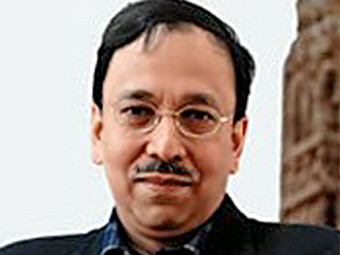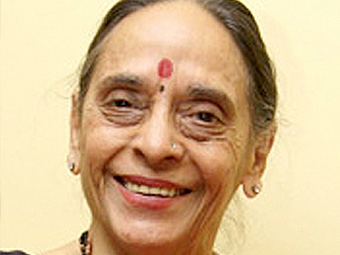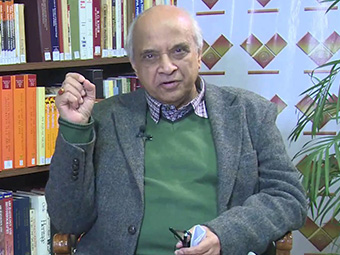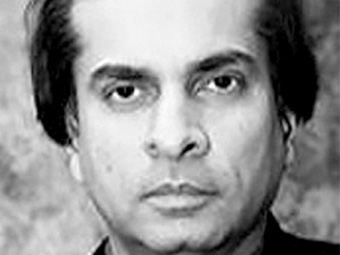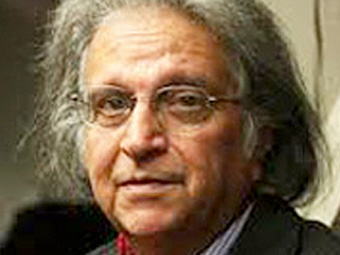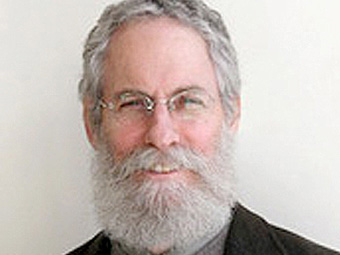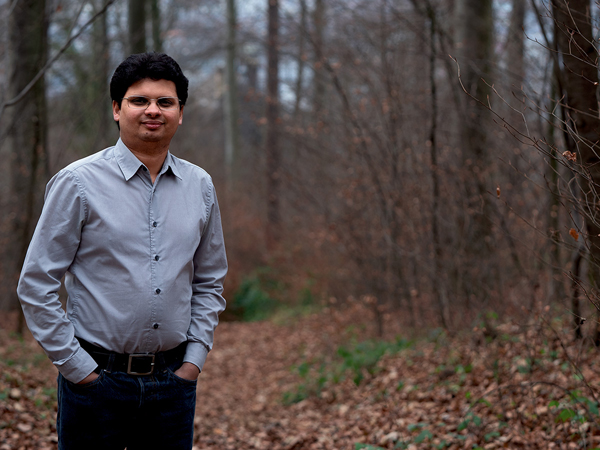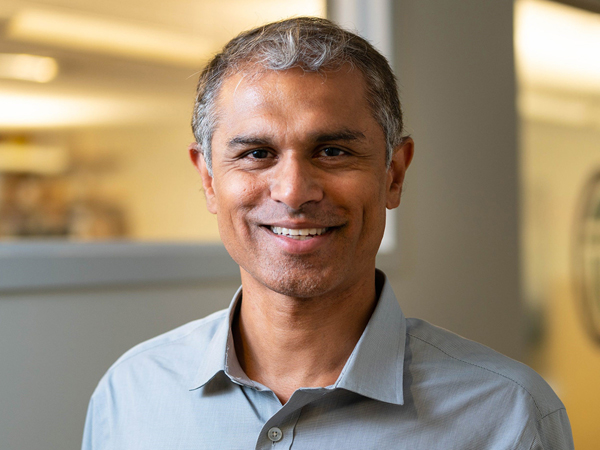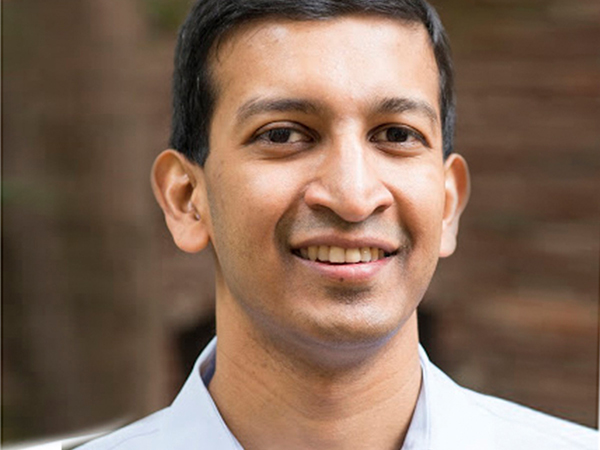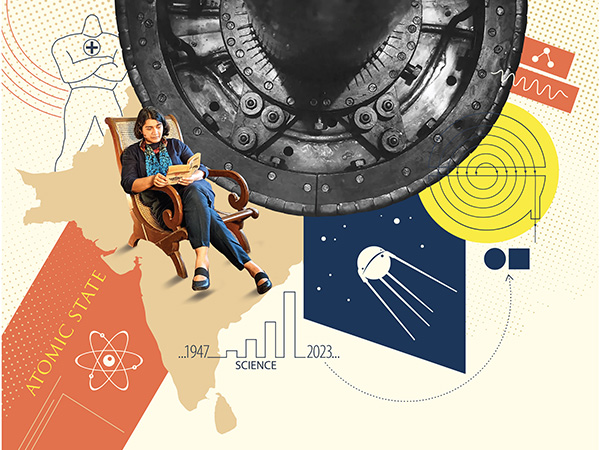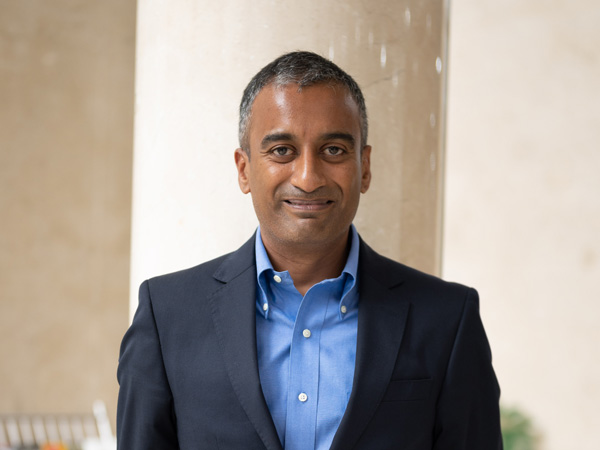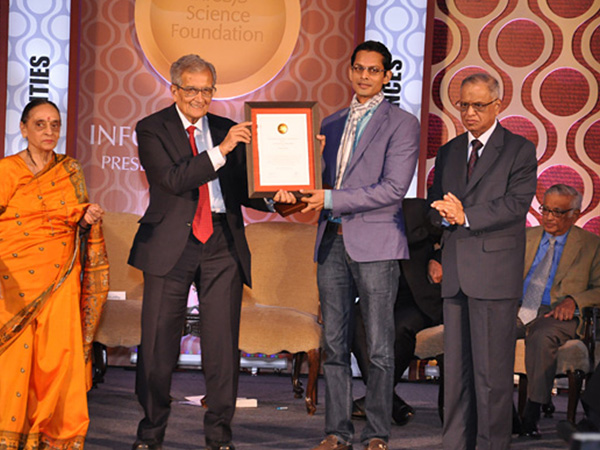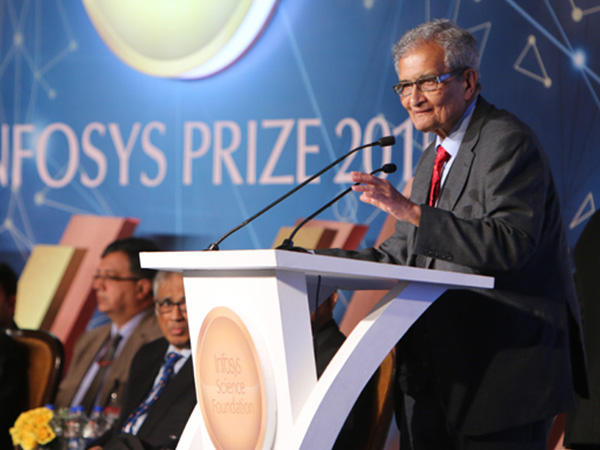
Humanities and Social Sciences
The humanities and social sciences examine the cultural, historical, philosophical, social and cultural aspects of human behavior. The Infosys Prize in Humanities & Social Sciences awards work in literary studies, history, art history, linguistics, law (including jurisprudence), archaeology, anthropology, political science (including international relations), psychology, and sociology.
In 2024, Humanities and Social Sciences were combined into one category, and Economics is a separate category.
Laureates
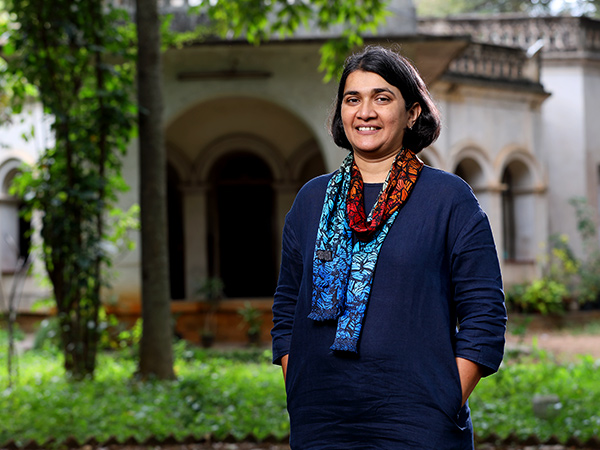
Humanities 2022
Sudhir Krishnaswamy
Vice Chancellor and Director, Department of Professional and Continuing Education, National Law School of India University, Bengaluru
Read More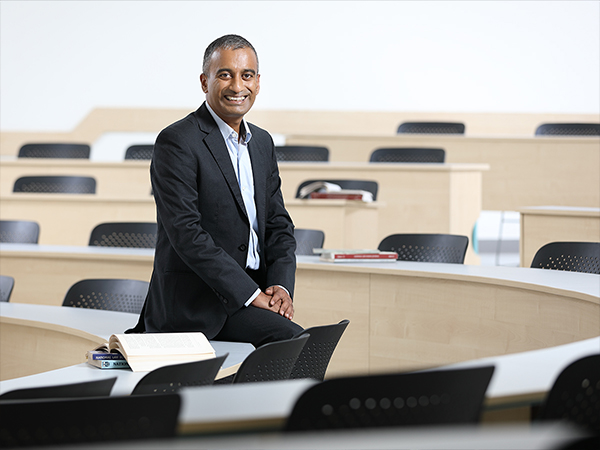
Humanities 2021
Ângela Barreto Xavier
Senior Researcher, Institute of Social Sciences, University of Lisbon, Portugal
Read More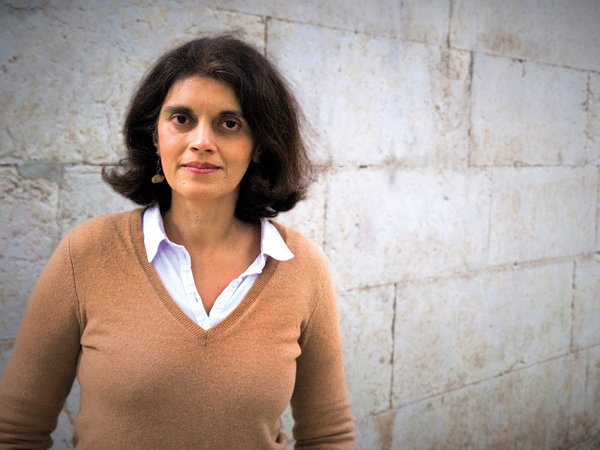
Humanities 2020
Prachi Deshpande
Associate Professor of History, Centre for Studies in Social Sciences, Kolkata
Read More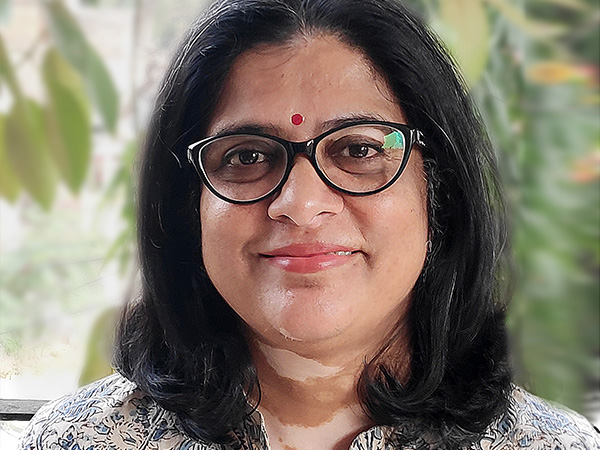
Humanities 2019
Manu V. Devadevan
Assistant Professor, School of Humanities and Social Sciences, Indian Institute of Technology, Mandi
Read More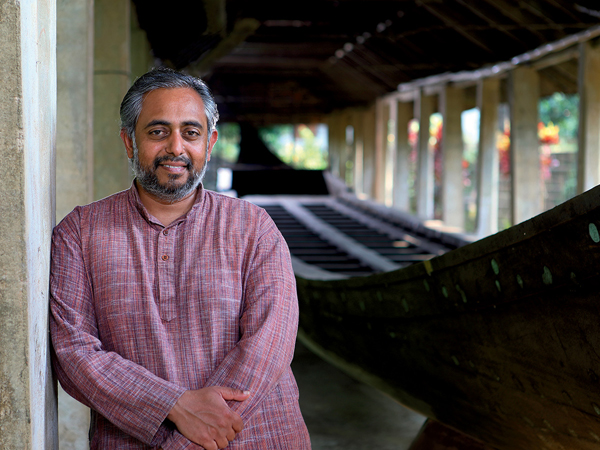
Humanities 2018
Kavita Singh
Professor and Dean, School of Arts & Aesthetics, Jawaharlal Nehru University, New Delhi
Read More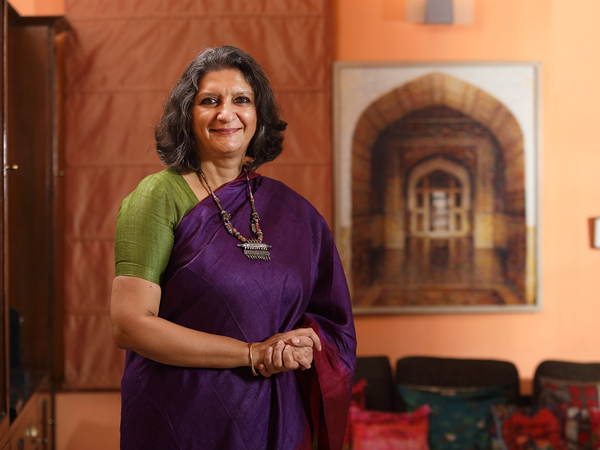
Humanities 2017
Ananya Jahanara Kabir
Professor of English Literature, Department of English, King’s College London, UK
Read More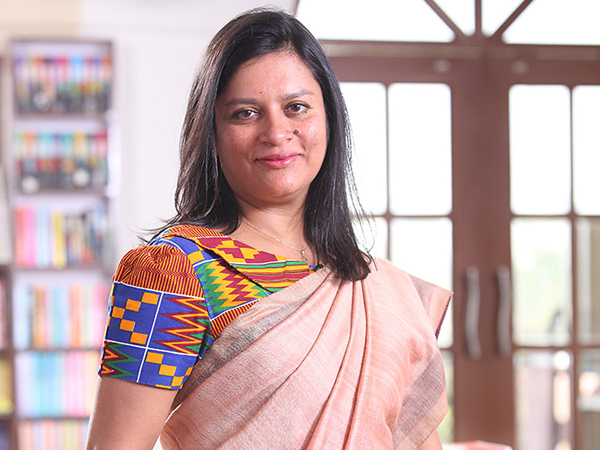
Humanities 2016
Sunil Amrith
Mehra Family Professor of South Asian Studies, Professor of History, History Department, Harvard University, US
Read More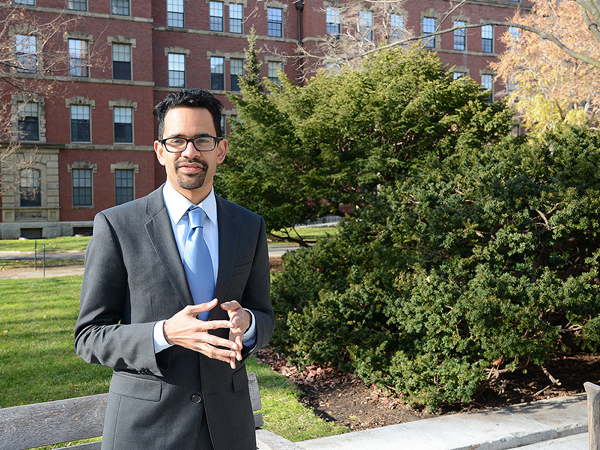
Humanities 2015
Jonardon Ganeri
Global Network Professor of Philosophy, New York University, New York and Visiting Professor, Department of Philosophy, King’s College, London
Read More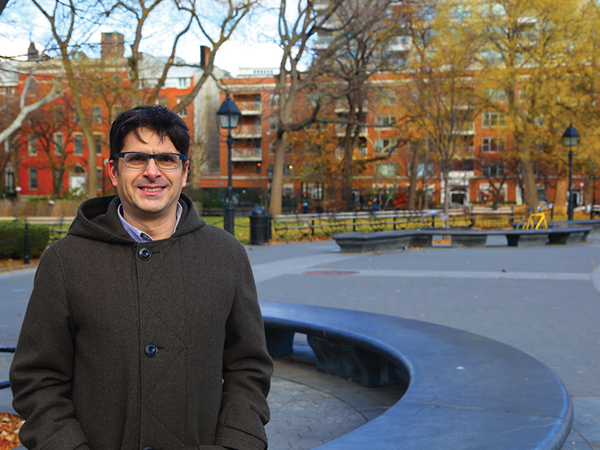
Humanities 2014
Shamnad Basheer
Founder and Managing Trustee, Increasing Diversity by Increasing Access, and Founder, SpicyIP, India
Read More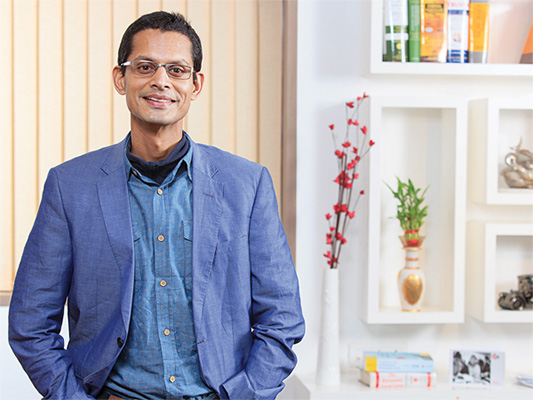
Humanities 2012
Sanjay Subrahmanyam
Distinguished Professor of History, & Navin and Pratima Doshi Endowed Chair, Pre-Modern Indian History, University of California at Los Angeles, USA
Read MoreHumanities 2012
Amit Chaudhuri
Professor of Contemporary Literature at University of East Anglia, Norwich, UK
Read More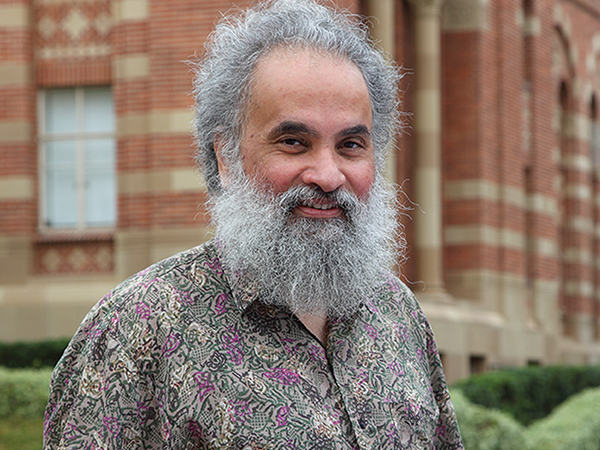
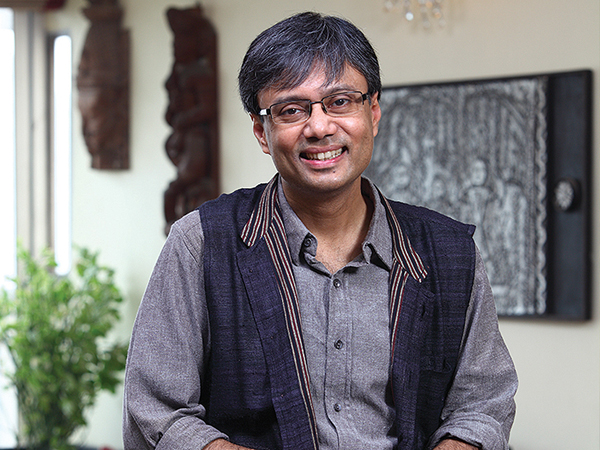
Jury
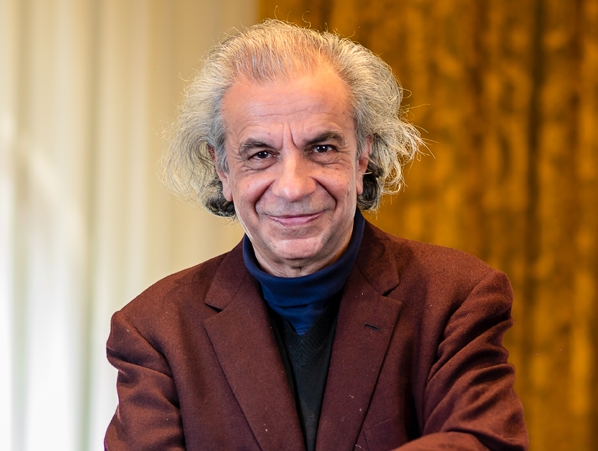
Akeel Bilgrami
Sidney Morgenbesser Professor of Philosophy; Professor, Committee on Global Thought, Columbia University
View More
Prof. Akeel Bilgrami
Sidney Morgenbesser Professor of Philosophy; Professor, Committee on Global Thought, Columbia University
View More
Prof. Akeel Bilgrami
Sidney Morgenbesser Professor of Philosophy; Professor, Committee on Global Thought, Columbia University
View More
Prof. Akeel Bilgrami
Sidney Morgenbesser Professor of Philosophy; Professor, Committee on Global Thought, Columbia University
View More
Prof. Akeel Bilgrami
Sidney Morgenbesser Professor of Philosophy; Professor, Committee on Global Thought, Columbia University
View More
Prof. Amartya Sen
Thomas W. Lamont University Professor, and Professor of Economics and Philosophy at Harvard University, USA
View More
Prof. Amartya Sen
Thomas W. Lamont University Professor, and Professor of Economics and Philosophy at Harvard University, USA
View More
Prof. Amartya Sen
Thomas W. Lamont University Professor, and Professor of Economics and Philosophy at Harvard University, USA
View More
Amartya Sen
Thomas W. Lamont University Professor, and Professor of Economics and Philosophy at Harvard University, USA
View More
Prof. Amartya Sen
Thomas W. Lamont University Professor, and Professor of Economics and Philosophy at Harvard University, USA
View More
Amartya Sen
Thomas W. Lamont University Professor, and Professor of Economics and Philosophy at Harvard University, USA
View More
Amartya Sen
Thomas W. Lamont University Professor, and Professor of Economics and Philosophy at Harvard University, USA
View MoreHumanities 2025
Humanities 2024
Humanities 2023
Prof. Akeel Bilgrami got a first degree in English Literature from Elphinstone College Bombay and then went as a Rhodes Scholar to Oxford University where he studied Philosophy, Politics, and Economics. He has a Ph.D. in Philosophy from the University of Chicago. He is the author of the books Belief and Meaning (Blackwell), Self-Knowledge and Resentment (Harvard University Press) and Secularism, Identity, and Enchantment (Harvard University Press, and in India Permanent Black Press) and Capital, Culture, and the Commons (Juxta Press and in India Permanent Black Press). He is currently writing a book on Gandhi's Philosophy as well as a longer work on the nature of practical reason.
Prof. Bilgrami teaches regular courses and seminars on a variety of subjects including The Philosophy of Language and Mind, Politics and Rationality, Religion and Politics, Cultural Identity and Modernity, and Gandhi’s thought. He is the President of the Trustees and the Executive Editor of The Journal of Philosophy. At Columbia University, Bilgrami has been the Chairman of the Philosophy Department from 1994-98, the Director of the Heyman Centre for the Humanities from Dec 2003-2010, and the Director of the South Asian Institute from 2013-2016. Akeel Bilgrami was elected to be a Cullman Fellow at the New York Public Library, held the Radhakrishnan Chair in India, visiting professorships at Oxford University and Yale University, and has been the recipient of fellowships and grants from the Mellon Foundation, Ford Foundation, National Endowment of the Humanities, as well as the Luce Foundation.
We are saddened by the passing away of eminent art historian and scholar, Prof. Singh at age 58 on July 30, 2023. Her erudition and warmth will be greatly missed by her students, colleagues and friends.
Prof. Kavita Singh is the 2018 Infosys Prize laureate in Humanities. Kavita Singh is Professor of Art History at the Jawaharlal Nehru University. Singh’s research interests include the history of Indian painting (particularly the Mughal and Rajput schools), and the history and politics of museums, with special reference to India. Singh has published several essays on secularism and religiosity, fraught national identities, and the memorialization of difficult histories as they relate to museums in South Asia and beyond.
Volumes that Prof. Singh has edited and co-edited include New Insights into Sikh Art (Marg, 2003); Influx: Contemporary Art in Asia (Sage, 2013); No Touching, No Spitting, No Praying: The Museum in South Asia (Routledge, 2014) with Saloni Mathur; Nauras: The Many Arts of the Deccan (National Museum, 2015) with Preeti Bahadur Ramaswami; Museum Storage and Meaning: Tales from the Crypt (Routledge 2017, with Mirjam Brusius); and Scent Upon a Southern Breeze (Marg 2018).
Prof. Kavita Singh has curated exhibitions at the San Diego Museum of Art, the Devi Art Foundation, Jawaharlal Nehru University, and the National Museum of India.
In 2020 Kavita Singh was appointed to the J. Paul Getty Trust Board of Trustees.
Dr. Prachi Deshpande is 2020 laureate of the Infosys Prize in Humanities. Dr. Deshpande’s research focuses on social and cultural history of historiography, language, and regional identities, particularly of Western India. Prachi Deshpande is Associate Professor of History at the Centre for Studies in Social Sciences in Kolkata, India. Dr. Deshpande has published scholarly works in English and Marathi. Her first book Creative Pasts: Historical Memory and Identity in Western India, 1700-1960 (2007) examined the emergence of modern history-writing practices in the Marathi-speaking areas of western India, and the importance of historical memory in shaping an enduring Maharashtrian regional identity.
Prachi Deshpande’s second book, Scripts of Power: Writing, Language Practices, and Cultural History in Western India (2023), examines changing relationships between writing, script and language through a focus on the cursive Modi script, and underlines the importance of the material world of writing to the modern linguistic state. Dr. Deshpande's essays and book chapters include "The Marathi kaulnāmā: Property, Sovereignty and Documentation in a Persianate form," in the Journal of the Economic and Social History of the Orient (2021); “The Writerly Self: Discourses of Literate Practice in Early Modern Western India,” in Indian Economic and Social History Review (2016); and “Scripting the Cultural History of Language: Modi in the Colonial Archive,” in Partha Chatterjee, Tapati Guha-Thakurta and Bodhisattva Kar, eds. New Cultural Histories of India (2014).
Prof. Partha Mitter, Hon. D.Lit. (Courtauld Institute, London University), is a writer and historian of art and culture, specializing in the reception of Indian art in the West, as well as in modernity, art and identity in India, and more recently in global modernism. He began his career as Junior Research Fellow at Churchill College, Cambridge (1968-69), moving to Clare Hall as Research Fellow by Open Competition (1970-1974). In 1974 he joined Sussex as a Lecturer in Indian History, retiring in 2002 as Professor in Art History. His publications include Much Maligned Monsters: History of European Reactions to Indian Art (Clarendon Press, Oxford, 1977; Chicago University Press Paperback, 1992; Oxford University Press, New Delhi, 2013); Art and Nationalism in Colonial India 1850-1922: Occidental Orientations (Cambridge University Press, 1994); Indian Art, Oxford Art History Series (Oxford University Press, Oxford, 2002); The Triumph of Modernism: India’s Artists and the Avant-Garde – 1922-1947 (Reaktion Books, London, Oxford University Press, New Delhi, 2007).
Prof. Mitter was Fellow of Institute for Advanced Study, Princeton (1981-82); Member, Getty Research Institute (2000-2001); Fellow, Sterling and Francine Clark Art Institute, Williamstown, Mass (2003-2004); Fellow, Center for Advanced Study in the Visual Arts, National Gallery of Art, Washington DC (2005-2006); Radhakrishnan Lecturer at All Souls College, Oxford (1992); and Getty Visiting Professor at Bogazici University, Istanbul (2011). In 2000 he was invited by the Indian Government to set up the School of Arts and Aesthetics at Jawaharlal Nehru University in New Delhi. In 1982 he curated and wrote an introduction to the catalogue of an exhibition on the history of Indian photography for the Photographers Gallery, London. At present he is Emeritus Professor in Art History, University of Sussex; Adjunct Research Professor, Carleton University, Canada; Member of Wolfson College, Oxford; and Honorary Fellow, Victoria & Albert Museum, London.
Prof. David Shulman is an Indologist whose research spans across the history of religion in South India, Indian poetics, Tamil Islam, Dravidian linguistics, and Carnatic music. Prof. Shulman is also a published poet in Hebrew, a literary critic, a cultural anthropologist who has authored/co-authored more than 20 books. Some of his work include More than Real: A History of the Imagination in South India (Harvard University Press, 2012); Tamil: A Biography (Harvard University Press, 2016); and Introspection and Insight: South Indian Minds in the Early Modern Age (Primus Publications, 2022).
David Shulman graduated from The Hebrew University in 1971 with a B.A. in Islamic History followed by a Doctorate in Tamil and Sanskrit, with a dissertation on 'The Mythology of the Tamil Saiva Talapuranam', at the School of Oriental and African Studies, University of London, 1976.
Prof. Shulman’s list of awards include MacArthur Fellowship (1987), Rothschild Prize (2004), The EMET Prize for Art, Science and Culture (2010), and The Israel Prize (2016) for his research on the literature and culture of southern India.
Humanities 2022
Prof. Akeel Bilgrami got a first degree in English Literature from Elphinstone College Bombay and then went as a Rhodes Scholar to Oxford University where he studied Philosophy, Politics, and Economics. He has a Ph.D. in Philosophy from the University of Chicago. He is the author of the books Belief and Meaning (Blackwell), Self-Knowledge and Resentment (Harvard University Press) and Secularism, Identity, and Enchantment (Harvard University Press). He is currently writing a book on Gandhi's Philosophy as well as a longer work on the nature of practical reason.
Prof. Bilgrami teaches regular courses and seminars on a variety of topics including The Philosophy of the Mind, Language, Issues in Politics and Rationality, and Religion and Politics in a Global Context. At Columbia University, he has been the Chairman of the Philosophy Department from 1994-98, the Director of the Heyman Centre for the Humanities from Dec 2003-2010, and the Director of the South Asian Institute from 2013-2016. He was elected to be a Cullman Fellow at the New York Public Library, held the Radhakrishnan Chair in India, visiting professorships at Oxford University and Yale University, and has been the recipient of fellowships and grants from the Mellon Foundation, Ford Foundation, National Endowment of the Humanities, as well as the Luce Foundation. He is also the President of the Trustees and the Executive Editor of The Journal of Philosophy.
Prof. Clare Harris gained her B.A. from the University of Cambridge, followed by an M.A. and Ph.D. from the School of Oriental and African Studies at the University of London. She is currently Professor of Visual Anthropology and Curator for Asian collections at the Pitt Rivers Museum, University of Oxford. Her pioneering work on Tibetan art, visual/material culture, photography and museums has effectively created a new field of study for which she has received international recognition in the form of book prizes, research grants, and invitations to lecture at universities around the world. Among her many publications, In the Image of Tibet: Tibetan Painting after 1959 won the jury prize for the best book in visual anthropology from the International Center for Ethnohistory in 2000. The Museum on the Roof of the World: Art, Politics and the Representation of Tibet received the E. Gene Smith prize from the Association of Asian Studies in 2013.
Prof Harris has conducted much of her research in India and is currently working on a monograph about the history of photography in the Himalayas. In September 2019, she was elected to the fellowship of the British Academy.
Prof. Partha Mitter, Hon.D.Lit. (Courtauld Institute, London University), is a writer and historian of art and culture, specializing in the reception of Indian art in the West, as well as in modernity, art and identity in India, and more recently in global modernism. He began his career as Junior Research Fellow at Churchill College, Cambridge (1968-69), moving to Clare Hall as Research Fellow by Open Competition (1970-1974). In 1974 he joined Sussex as a Lecturer in Indian History, retiring in 2002 as Professor in Art History. His publications include Much Maligned Monsters: History of European Reactions to Indian Art (Clarendon Press, Oxford, 1977: Chicago University Press Paperback, 1992; Oxford University Press, New Delhi, 2013); Art and Nationalism in Colonial India 1850-1922: Occidental Orientations (Cambridge University Press, 1994); Indian Art, Oxford Art History Series (Oxford University Press, Oxford, 2002); The Triumph of Modernism: India’s Artists and the Avant-Garde – 1922-1947 (Reaktion Books, London, Oxford University Press, New Delhi, 2007).
Prof. Mitter was Fellow of Institute for Advanced Study, Princeton (1981-82), Member, Getty Research Institute (2000-2001), Fellow, Sterling and Francine Clark Art Institute, Williamstown, Mass (2003-2004), Fellow, Center for Advanced Study in the Visual Arts, National Gallery of Art, Washington DC (2005-2006), Radhakrishnan Lecturer at All Souls College, Oxford in 1992 and Getty Visiting Professor at Bogazici University, Istanbul in 2011. In 2000 he was invited by the Indian Government to set up the School of Art and Aesthetics at Jawaharlal Nehru University in New Delhi. In 1982 he curated and wrote an introduction to the catalogue of an exhibition on the history of Indian photography for the Photographers Gallery, London. At present he is Emeritus Professor in Art History, University of Sussex, Adjunct Research Professor, Carleton University, Canada, Member of Wolfson College, Oxford and Honorary Fellow, Victoria & Albert Museum, London.
Prof. Kamala Sankaran completed her undergraduate degree in Economics (Hons.) from Miranda House, followed by degrees in Law (LL.B., LL.M., and Ph.D) from the University of Delhi. She has previously served as a Professor at the Campus Law Centre, Faculty of Law, University of Delhi, the Vice-Chancellor, Tamil Nadu National Law University, Tiruchirappalli, as well as a Research Professor, Indian Law Institute, New Delhi. She was a recipient of the Fulbright Postdoctoral Research Fellowship at the Georgetown University Law Center, Washington D.C. She has also been a Visiting South Asian Research Fellow, School of Interdisciplinary Area Studies, Oxford University, and a Fellow at the Stellenbosch Institute of Advanced Study, South Africa.
Prof. Sankaran has been a member of the Committee of Experts on the Application of Conventions and Recommendations (CEACR), ILO, since 2018. Her research interests include constitutional law, international labor standards, and the regulation of work. Her books include Freedom of Association in India and International Labour Standards (LexisnexisButterworthsWadhwa, 2009), Challenging the Legal Boundaries of Work Regulation, Fudge, McCrystal and Sankaran eds.(Hart Publishing, Oxford, 2012), and Affirmative Action: A View from the Global South, Dupper and Sankaran eds., (Sun Media, Stellenbosch, 2014). She is a member of the Editorial Team, University of Oxford’s Human Rights Hub Journal, Member of the Editorial Advisory Board of the Indian Journal of Labour Economics, and has served as Editor of the Delhi Law Review.
Prof. Sanjay Subrahmanyam completed his B.A. and M.A. in Economics in the University of Delhi and earned his Ph.D. at the Delhi School of Economics. He served as Directeur d’études in the Ecole des Hautes Etudes en Sciences Sociales (Paris) from 1994 to 2002 and Professor of Indian History and Culture at Oxford University from 2002 to 2004, among his other appointments. Prof. Subrahmanyam was Joint Managing Editor of the Indian Economic and Social History Review for over a decade, besides serving on the boards of several other journals in the US, UK, France and Portugal. He was also one of the founding editors of the "South Asia Across the Disciplines (SAAD)" monograph series. In 2013, Sanjay Subrahmanyam was elected to a Chair in Early Modern Global History at the Collège de France in Paris. He has authored Europe's India: Words, People, Empires, 1500-1800, and Empires Between Islam and Christianity, 1500-1800. In February 2019, he was awarded the Dan David Prize for History (jointly with Kenneth Pomeranz, Chicago).
Humanities 2021
Prof. Akeel Bilgrami got a first degree in English Literature from Elphinstone College Bombay and then went as a Rhodes Scholar to Oxford University where he studied Philosophy, Politics, and Economics. He has a Ph.D. in Philosophy from the University of Chicago. He is the author of the books Belief and Meaning (Blackwell), Self-Knowledge and Resentment (Harvard University Press) and Secularism, Identity, and Enchantment (Harvard University Press). He is currently writing a book on Gandhi's Philosophy as well as a longer work on the nature of practical reason.
Prof. Bilgrami teaches regular courses and seminars on a variety of topics including The Philosophy of the Mind, Language, Issues in Politics and Rationality, and Religion and Politics in a Global Context. At Columbia University, he has been the Chairman of the Philosophy Department from 1994-98, the Director of the Heyman Centre for the Humanities from Dec 2003-2010, and the Director of the South Asian Institute from 2013-2016. He was elected to be a Cullman Fellow at the New York Public Library, held the Radhakrishnan Chair in India, visiting professorships at Oxford University and Yale University, and has been the recipient of fellowships and grants from the Mellon Foundation, Ford Foundation, National Endowment of the Humanities, as well as the Luce Foundation. He is also the President of the Trustees and the Executive Editor of The Journal of Philosophy.
Prof. Partha Mitter, Hon.D.Lit. (Courtauld Institute, London University), is a writer and historian of art and culture, specializing in the reception of Indian art in the West, as well as in modernity, art and identity in India, and more recently in global modernism. He began his career as Junior Research Fellow at Churchill College, Cambridge (1968-69), moving to Clare Hall as Research Fellow by Open Competition (1970-1974). In 1974 he joined Sussex as a Lecturer in Indian History, retiring in 2002 as Professor in Art History. His publications include Much Maligned Monsters: History of European Reactions to Indian Art (Clarendon Press, Oxford, 1977: Chicago University Press Paperback, 1992; Oxford University Press, New Delhi, 2013); Art and Nationalism in Colonial India 1850-1922: Occidental Orientations (Cambridge University Press, 1994); Indian Art, Oxford Art History Series (Oxford University Press, Oxford, 2002); The Triumph of Modernism: India’s Artists and the Avant-Garde – 1922-1947 (Reaktion Books, London, Oxford University Press, New Delhi, 2007).
Prof. Mitter was Fellow of Institute for Advanced Study, Princeton (1981-82), Member, Getty Research Institute (2000-2001), Fellow, Sterling and Francine Clark Art Institute, Williamstown, Mass (2003-2004), Fellow, Center for Advanced Study in the Visual Arts, National Gallery of Art, Washington DC (2005-2006), Radhakrishnan Lecturer at All Souls College, Oxford in 1992 and Getty Visiting Professor at Bogazici University, Istanbul in 2011. In 2000 he was invited by the Indian Government to set up the School of Art and Aesthetics at Jawaharlal Nehru University in New Delhi. In 1982 he curated and wrote an introduction to the catalogue of an exhibition on the history of Indian photography for the Photographers Gallery, London. At present he is Emeritus Professor in Art History, University of Sussex, Adjunct Research Professor, Carleton University, Canada, Member of Wolfson College, Oxford and Honorary Fellow, Victoria & Albert Museum, London.
Prof. Janet Gyatso is a specialist in Buddhist studies with concentration on Tibetan and South Asian cultural and intellectual history. Her books include Being Human in a Buddhist World: An Intellectual History of Medicine in Early Modern Tibet (Columbia University Press, 2015), which focuses upon alternative early modernities and the conjunctions and disjunctures between religious and scientific epistemologies in Tibetan medicine in the sixteenth–eighteenth centuries. Other works include Apparitions of the Self: The Secret Autobiographies of a Tibetan Visionary; In the Mirror of Memory: Reflections on Mindfulness and Remembrance in Indian and Tibetan Buddhism; and Women of Tibet.
Prof. Gyatso was elected to the American Academy of Arts and Science in 2018. She was president of the International Association of Tibetan Studies from 2000 to 2006, and co-chair of the Buddhism Section of the American Academy of Religion from 2004 to 2010. She taught at Amherst College before becoming the first Hershey Professor of Buddhist Studies at Harvard Divinity School.
Prof. David Shulman is an Indologist, poet and peace activist, known for his work on the history of religion in South India, Indian poetics, Tamil Islam, Dravidian linguistics, and Carnatic music. Bilingual in Hebrew and English, he has mastered Sanskrit, Tamil and Telugu, and reads Greek, Russian, French, German, Persian, Arabic and Malayalam. He is also a published poet in Hebrew, a literary critic, a cultural anthropologist who has authored/co-authored more than 20 books. Some of his work includes: More than Real: A History of the Imagination in South India (Harvard University Press, 2012); and Tamil: A Biography (Harvard University Press, 2016). He graduated from The Hebrew University in 1971 with a B.A. degree in Islamic History followed by a Doctorate in Tamil and Sanskrit, with a dissertation on 'The Mythology of the Tamil Saiva Talapuranam', at the School of Oriental and African Studies, University of London, 1976.
Prof. Shulman’s list of Awards include MacArthur Fellowship (1987), Rothschild Prize (2004), The EMET Prize for Art, Science and Culture (2010), The Israel Prize (2016) for his research on the literature and culture of southern India. He has also been a member of the Israel Academy of Sciences and Humanities since 1988.
Prof. Sanjay Subrahmanyam completed his B.A. and M.A. in Economics in the University of Delhi and earned his Ph.D. at the Delhi School of Economics. He served as Directeur d’études in the Ecole des Hautes Etudes en Sciences Sociales (Paris) from 1994 to 2002 and Professor of Indian History and Culture at Oxford University from 2002 to 2004, among his other appointments. Prof. Subrahmanyam was Joint Managing Editor of the Indian Economic and Social History Review for over a decade, besides serving on the boards of several other journals in the US, UK, France and Portugal. He was also one of the founding editors of the "South Asia Across the Disciplines (SAAD)" monograph series. In 2013, Sanjay Subrahmanyam was elected to a Chair in Early Modern Global History at the Collège de France in Paris. He has authored Europe's India: Words, People, Empires, 1500-1800, and Empires Between Islam and Christianity, 1500-1800. In February 2019, he was awarded the Dan David Prize for History (jointly with Kenneth Pomeranz, Chicago).
Humanities 2020
Prof. Akeel Bilgrami got a first degree in English Literature from Elphinstone College Bombay and then went as a Rhodes Scholar to Oxford University where he studied Philosophy, Politics, and Economics. He has a Ph.D. in Philosophy from the University of Chicago. He is the author of the books Belief and Meaning (Blackwell), Self-Knowledge and Resentment (Harvard University Press) and Secularism, Identity, and Enchantment (Harvard University Press) and is currently writing a book on Gandhi's Philosophy as well as a longer work on the nature of practical reason.
He teaches regular courses and seminars on a variety of topics including The Philosophy of the Mind, Language, Issues in Politics and Rationality, and Religion and Politics in a Global Context. At Columbia University, he has been the Chairman of the Philosophy Department from 1994-98, the Director of the Heyman Centre for the Humanities from Dec 2003-2010, and the Director of the South Asian Institute from 2013-2016. He was elected to be a Cullman Fellow at the New York Public Library, held the Radhakrishnan Chair in India, visiting professorships at Oxford University and Yale University, and has been the recipient of fellowships and grants from the Mellon Foundation, Ford Foundation, National Endowment of the Humanities, as well as the Luce Foundation. He is also the President of the Trustees and the Executive Editor of The Journal of Philosophy. He lives with his wife and daughter in New York City.
Prof. Clare Harris gained her B.A. from the University of Cambridge, followed by an M.A. and Ph.D. from the School of Oriental and African Studies at the University of London. She is currently Professor of Visual Anthropology and Curator for Asian collections at the Pitt Rivers Museum, University of Oxford. Her pioneering work on Tibetan art, visual/material culture, photography and museums has effectively created a new field of study for which she has received international recognition in the form of book prizes, research grants, and invitations to lecture at universities around the world. Among her many publications, In the Image of Tibet: Tibetan Painting after 1959 won the jury prize for the best book in visual anthropology from the International Center for Ethnohistory in 2000. The Museum on the Roof of the World: Art, Politics and the Representation of Tibet received the E. Gene Smith prize from the Association of Asian Studies in 2013.
Prof Harris has conducted much of her research in India and is currently working on a monograph about the history of photography in the Himalayas. In September 2019, she was elected to the fellowship of the British Academy.
Prof. Janet Gyatso is a specialist in Buddhist studies with concentration on Tibetan and South Asian cultural and intellectual history. Her books include Being Human in a Buddhist World: An Intellectual History of Medicine in Early Modern Tibet (Columbia University Press, 2015), which focuses upon alternative early modernities and the conjunctions and disjunctures between religious and scientific epistemologies in Tibetan medicine in the sixteenth–eighteenth centuries. Previous books are Apparitions of the Self: The Secret Autobiographies of a Tibetan Visionary (a study of the autobiographical self in Tibetan Buddhist history); In the Mirror of Memory: Reflections on Mindfulness and Remembrance in Indian and Tibetan Buddhism; and Women of Tibet. She has also been writing on the philosophy of experience, sex and gender in Buddhist monasticism, and on the current female ordination movement in Buddhism. Her current writing project concerns the phenomenology of animal life and animal ethics in the Anthropocene.
Prof. Gyatso was elected a Fellow of the American Academy of Arts and Sciences in 2017. She was president of the International Association of Tibetan Studies from 2000 to 2006, and co-chair of the Buddhism Section of the American Academy of Religion from 2004 to 2010. She taught at Amherst College before coming to Harvard as the Divinity School's first Hershey Professor of Buddhist Studies. In July 2014 she became HDS associate dean for faculty and academic affairs.
Prof. Christopher Shackle retired in 2007 as Emeritus Professor of Modern Languages of South Asia after 40 years on the academic staff of the School of Oriental and African Studies, University of London, where he was Pro-Director from 1997 to 2003. Originally graduating in Persian with Turkish from the University of Oxford, he came to specialise in the languages, literatures, and religions of South Asia. His wide ranging publications in these fields include The Siraiki Language of Pakistan (1976), A Guru Nanak Glossary (1981), An Introduction to the Sacred Language of the Sikhs (1983), Qasida Poetry in Islamic Asia and Africa (with Stefan Sperl, 1996), and Attar and the Persian Sufi Tradition (with Leonard Lewisohn, 2005). He was elected a Fellow of the British Academy in 1990 and was awarded the medal of the Royal Asiatic Society in 2004 and the Sitara-i-Imtiyaz from the government of Pakistan in 2005. Since he retired, his translation from Panjabi of the Sufi lyrics of Bullhe Shah appeared in 2015 as the inaugural volume of the Murty Classical Library of India, where it was followed in 2018 by his English version of the classic Sindhi poetry of Shah Abdul Latif Bhitai.
Prof. David Shulman is an Indologist whose research spans across the history of religion in South India, Indian poetics, Tamil Islam, Dravidian linguistics, and Carnatic music. He is also a published poet in Hebrew, a literary critic, a cultural anthropologist who has authored/co-authored more than 20 books. Some of his work includes: More than Real: A History of the Imagination in South India (Harvard University Press, 2012); and Tamil: A Biography (Harvard University Press, 2016).
He graduated from The Hebrew University in 1971 with a B.A. degree in Islamic History followed by a Doctorate in Tamil and Sanskrit, with a dissertation on 'The Mythology of the Tamil Saiva Talapuranam', at the School of Oriental and African Studies, University of London, 1976.
Prof. Shulman’s list of Awards include MacArthur Fellowship (1987), Rothschild Prize (2004), The EMET Prize for Art, Science and Culture (2010), The Israel Prize (2016) for his research on the literature and culture of southern India.
Prof. Sanjay Subrahmanyam completed his BA and MA in Economics in the University of Delhi and earned his Ph.D. at the Delhi School of Economics. He has served as the Directeur d’études in the Ecole des Hautes Etudes en Sciences Sociales (Paris), 2002, and Founding Director of UCLA's Center for India and South Asia, 2011, among his other appointments.
Prof. Subrahmanyam was Joint Managing Editor of the Indian Economic and Social History Review for over a decade, besides serving on the boards of several other journals in the US, UK, France and Portugal. He was also one of the founding editors of the "South Asia Across the Disciplines (SAAD)" monograph series. In 2013, Sanjay Subrahmanyam was elected to a Chair in Early Modern Global History at the Collège de France in Paris.
He has authored Europe's India: Words, People, Empires, 1500-1800, and Empires Between Islam and Christianity, 1500-1800.
In February 2019, he was awarded the Dan David Prize for History (jointly with Kenneth Pomeranz, Chicago).
Humanities 2019
Prof. Bilgrami got a first degree in English Literature from Elphinstone College Bombay and then went as a Rhodes Scholar to Oxford University where he studied Philosophy, Politics, and Economics. He has a Ph.D. in Philosophy from the University of Chicago. He is the author of the books Belief and Meaning (Blackwell), Self-Knowledge and Resentment (Harvard University Press) and Secularism, Identity, and Enchantment (Harvard University Press) and is currently writing a book on Gandhi's Philosophy as well as a longer work on the nature of practical reason.
He teaches courses and seminars regularly in the Philosophy of Mind and Language and also on issues in Politics and Rationality as well as Religion and Politics in a Global Context. At Columbia University, he has been the Chairman of the Philosophy Department from 1994-98, the Director of the Heyman Centre for the Humanities from Dec 2003-2010, and the Director of the South Asian Institute from 2013-2016. He was elected to be a Cullman Fellow at the New York Public Library, held the Radhakrishnan Chair in India, visiting professorships at Oxford University and Yale University, and has been the recipient of fellowships and grants from the Mellon Foundation, Ford Foundation, National Endowment of the Humanities, as well as the Luce Foundation. He is also the President of the Trustees and the Executive Editor of The Journal of Philosophy. He lives with his wife and daughter in New York City.
Prof. Dehejia completed her BA and MA from Cambridge University and later went on to earn her PhD from the same university. She started her career as a lecturer at the University of Hong Kong, 1972. Some of her other appointments include: Chief Curator & Deputy Director, Smithsonian Institution, Washington, D.C.,2002; Director, South Asian Institute, Columbia University, New York, 2008, General Editor, Marg Publications, Mumbai, 2015, etc.
Her impressive body of work has ranged from Buddhist art of the centuries BC to the esoteric temples of North India, and from the sacred bronzes of the South to the art of British India. Extensive travel in South Asia, with visits to sites of importance in Southeast Asia, has given her first hand familiarity with the art of the region.
Among many honors and awards won by her, in 2012, she was awarded the Padma Bhushan by the President of India for exceptional contribution to Art and Education.
David Dean Shulman is an Indologist whose research spans across the history of religion in South India, Indian poetics, Tamil Islam, Dravidian linguistics, and Carnatic music. He is also a published poet in Hebrew, a literary critic, a cultural anthropologist who has authored/co-authored more than 20 books. Some of his work includes: More than Real: A History of the Imagination in South India (Harvard University Press, 2012); and Tamil: A Biography (Harvard University Press, 2016).
He graduated from the Hebrew University in 1971 with a B.A. degree in Islamic History followed by a Doctorate in Tamil and Sanskrit, with a dissertation on 'The Mythology of the Tamil Saiva Talapuranam', at the School of Oriental and African Studies, University of London, 1976.
Prof. Shulman’s list of Awards include MacArthur Fellowship (1987), Rothschild Prize (2004), The EMET Prize for Art, Science and Culture (2010), The Israel Prize (2016) for his research on the literature and culture of southern India.
Prof. Subrahmanyam completed his BA and MA in Economics in the University of Delhi and earned his PhD at the Delhi School of Economics.He has served as the Directeur d’études in the Ecole des Hautes Etudes en Sciences Sociales (Paris), 2002, and Founding Director of UCLA's Center for India and South Asia, 2011, among his other appointments.
Prof. Subrahmanyam was Joint Managing Editor of the Indian Economic and Social History Review for over a decade, besides serving on the boards several other journals in the US, UK, France and Portugal. He was also one of the founding editors of the "South Asia Across the Disciplines (SAAD)" monograph series. In 2013, Sanjay Subrahmanyam was elected to a Chair in Early Modern Global History at the Collège de France in Paris.
He has authored Europe's India: Words, People, Empires, 1500-1800, and Empires Between Islam and Christianity, 1500-1800.
In February 2019, he was awarded the Dan David Prize for History (jointly with Kenneth Pomeranz, Chicago).
Prof. Eck’s academic work focuses primarily on India and America and in both cases she is interested in the challenges of religious pluralism in a multi-religious society. Her work on India includes the books - Banaras: City of Light and Darsan: Seeing the Divine Image in India.
Her other works include: The Pluralism Project's award-winning CD-ROM, On Common Ground: World Religions in America, A New Religious America: How a "Christian Country" Has Become the World's Most Religiously Diverse Nation etc. Her book Encountering God: A Spiritual Journey from Bozeman to Banaras won the Grawemeyer Book Award in 1995, and a 10th-anniversary edition was published in 2003.
She has received several awards and honors including: National Humanities Award from President Clinton and the National Endowment for the Humanities in 1998, the Montana Governor's Humanities Award in 2003, and the Melcher Lifetime Achievement Award from the Unitarian Universalist Association in 2003.
Rajeswari Sunder Rajan is Global Distinguished Professor in the English department at NYU, and author of several books on gender, culture, secularism, and the novel in English. She received her BA honours and MA in English from the University of Bombay, and her doctoral degree at the George Washington University, Washington DC.
She taught in colleges in India for many years, after which she moved to the University of Oxford where she was Reader in the English faculty and Professorial Fellow at Wolfson College. She has been a Senior Fellow at the Nehru Memorial Museum and Library, and at the Centre for Women's Development Studies, New Delhi.
Her research interests include Indian writing in English, gender and secularism in South Asia, and British nineteenth-century literature. Chief among her publications are Real and Imagined Women: Gender, Culture and Postcolonialism (1993), and Scandal of the State: Women, Law and Citizenship in Postcolonial India (2003).
Humanities 2018
Until 2004, he was the Master of Trinity College, Cambridge. He has served as President of the Econometric Society, the American Economic Association, the Indian Economic Association, and the International Economic Association. Amartya Sen's awards include, among other recognitions, Bharat Ratna (India), Commandeur de la Legion d'Honneur (France), the National Humanities Medal (USA), Ordem do Merito Cientifico (Brazil), Honorary Companion of Honour (UK), Aztec Eagle (Mexico), Edinburgh Medal (UK), the George Marshall Award (USA), the Eisenhauer Medal (USA), and the Nobel Prize in Economics.
David Dean Shulman is an Indologist whose research spans across the history of religion in South India, Indian poetics, Tamil Islam, Dravidian linguistics, and Carnatic music. He is also a published poet in Hebrew, a literary critic, a cultural anthropologist who has authored or co-authored more than 20 books embracing various subjects ranging from temple myths and poems to essays on the cultural history of South India. Some of his work includes: More than Real: A History of the Imagination in South India (Harvard University Press, 2012); and Tamil: A Biography (Harvard University Press, 2016).
He graduated from the Hebrew University in 1971 with a B.A. degree in Islamic History followed by a Doctorate in Tamil and Sanskrit, with a dissertation on 'The Mythology of the Tamil Saiva Talapuranam', at the School of Oriental and African Studies, University of London, 1976.
His prior appointments include: Lecturer in the department of Indian Studies and Comparative Religion at Hebrew University; MacArthur Fellow (1987 to 1992); Elected member of the Israel Academy of Sciences and Humanities (1988); Director of the Jerusalem Institute of Advanced Studies for six years (1992–1998).
Prof. Shulman’s list of Awards include MacArthur Fellowship (1987), Rothschild Prize (2004), The EMET Prize for Art, Science and Culture (2010), The Israel Prize (2016) for his research on the literature and culture of southern India.
Nayanjot Lahiri is a historian and archaeologist of ancient India and a professor of history at Ashoka University. Her prior appointments include Lecturer at the Department of History, Hindu College, University of Delhi (1982 – 1993); Reader at the Department of History, University of Delhi (1993 – 2001); and Professor at Department of History, University of Delhi (2001-2016).
Prof. Lahiri won the 2013 Infosys Prize in the humanities for her contribution towards the integration of archaeological knowledge with the historical understanding of India from the earliest times. She also won the 2016 John F. Richards prize for her book Ashoka in Ancient India. Her books include: The Archaeology of Indian Trade Routes (1992), Finding Forgotten Cities (2005), Ashoka in Ancient India (2015), and Monuments Matter: India's Archaeological Heritage After Independence (2017). She has edited The Decline and Fall of the Indus Civilization (2000) and an issue of World Archaeology entitled The Archaeology of Hinduism (2004).
Amit Chaudhuri graduated from University College, London, and was a research student at Balliol College, Oxford. He was later Creative Arts Fellow at Wolfson College, Oxford.
Author of seven novels, his works of fiction include A Strange and Sublime Address (1991), Afternoon Raag (1993), Freedom Song (1998), A New World (2000), Real Time (2002) The Immortals (2009), Odysseus Abroad (2013), and Friend of My Youth (2017).
His critical work includes D. H. Lawrence and 'Difference': Postcoloniality and the Poetry of the Present (2003), Clearing a Space (2008), and the forthcoming The Origins of Dislike (2018). He has one collection of poetry, St. Cyril Road and Other Poems (2005), and has edited various anthologies, including The Picador Book of Modern Indian Literature (2001). His major work of non-fiction, Calcutta: Two Years in the City, was published in 2013, as was his book of essays, Telling Tales.
Amit Chaudhuri won the inaugural 2012 Infosys Prize in Humanities in Literary Studies for his 'imaginative and illuminating writings in literary criticism'. He has received several awards such as the Commonwealth Writers Prize (1991), the UK’s Society of Authors’ Betty Trask Award for best first novel (1991), the Society of Authors’ Encore Prize for Best Second Novel (1993), the Los Angeles Times Book Prize for Fiction (2000), the Sahitya Akademi award (2002), and the West Bengal Government’s Rabindra Puraskar (2012) for his writings on Tagore.
Prof. Bilgrami got a first degree in English Literature from Elphinstone College Bombay and then went as a Rhodes Scholar to Oxford University where he studied Philosophy, Politics, and Economics. He has a Ph.D. in Philosophy from the University of Chicago. He is the author of the books Belief and Meaning (Blackwell), Self-Knowledge and Resentment (Harvard University Press) and Secularism, Identity, and Enchantment (Harvard University Press) and is currently writing a book on Gandhi's Philosophy as well as a longer work on the nature of practical reason. He teaches courses and seminars regularly in the Philosophy of Mind and Language and also on issues in Politics and Rationality as well as Religion and Politics in a Global Context. At Columbia University, he has been the Chairman of the Philosophy Department from 1994-98, the Director of the Heyman Centre for the Humanities from Dec 2003-2010, and the Director of the South Asian Institute from 2013-2016. He was elected to be a Cullman Fellow at the New York Public Library, held the Radhakrishnan Chair in India, visiting professorships at Oxford University and Yale University, and has been the recipient of fellowships and grants from the Mellon Foundation, Ford Foundation, National Endowment of the Humanities, as well as the Luce Foundation. He is the editor and President of the Trustees of the Journal of Philosophy. He lives with his wife and daughter in New York City.
Harriet Ritvo is the Arthur J. Conner Professor of History at Massachusetts Institute of Technology, and teaches courses in British history, environmental history, the history of human-animal relations, and the history of natural history. She has been a Visiting Fellow at Clare Hall (Cambridge University, UK) and Balliol College (Oxford University, UK). She was born in Cambridge, Massachusetts and received her A.B. and Ph.D. from Harvard; she also studied at Girton College (Cambridge University).
Ritvo is the author of The Platypus and the Mermaid, and Other Figments of the Classifying Imagination (1997), The Animal Estate: The English and Other Creatures in the Victorian Age (1987), The Dawn of Green: Manchester, Thirlmere, and Modern Environmentalism (2009), and Noble Cows and Hybrid Zebras: Essays on Animals and History (2010).
A fellow of the American Academy of Arts & Sciences, she has received fellowships from the Guggenheim Foundation, the National Endowment for the Humanities, and the National Humanities Center.
Humanities 2017
Until 2004, he was the Master of Trinity College, Cambridge. He has served as President of the Econometric Society, the American Economic Association, the Indian Economic Association, and the International Economic Association.
Amartya Sen's awards include Bharat Ratna (India), Commandeur de la Legion d'Honneur (France), the National Humanities Medal (USA), Ordem do Merito Cientifico (Brazil), Honorary Companion of Honour (UK), Aztec Eagle (Mexico), Edinburgh Medal (UK), the George Marshall Award (USA), the Eisenhauer Medal (USA), and the Nobel Prize in Economics.
Nayanjot Lahiri is a historian and archaeologist of ancient India and a professor of history at Ashoka University. Her prior appointments include Lecturer at the Department of History, Hindu College, University of Delhi (1982 – 1993) and Reader at the Department of History, University of Delhi (1993 – 2001).
Prof. Lahiri won the 2013 Infosys Prize in the humanities for her contribution towards the integration of archaeological knowledge with the historical understanding of India from the earliest times. She also won the 2016 John F. Richards prize for her book Ashoka in Ancient India. Her books include The Archaeology of Indian Trade Routes (1992), Finding Forgotten Cities (2005), and Ashoka in Ancient India (2015). She has edited The Decline and Fall of the Indus Civilization (2000) and an issue of World Archaeology entitled The Archaeology of Hinduism (2004).
Prof. Bilgrami got a first degree in English Literature from Elphinstone College Bombay and then went as a Rhodes Scholar to Oxford University where he studied Philosophy, Politics, and Economics. He has a Ph.D. in Philosophy from the University of Chicago. He is the author of the books Belief and Meaning (Blackwell), Self-Knowledge and Resentment (Harvard University Press) and Secularism, Identity, and Enchantment (Harvard University Press) and is currently writing a book on Gandhi's Philosophy as well as a longer work on the nature of practical reason. He teaches courses and seminars regularly in the Philosophy of Mind and Language and also on issues in Politics and Rationality as well as Religion and Politics in a Global Context. He was the Director of the Heyman Centre for the Humanities at Columbia University from Dec 2003-2010. He was elected to be a Cullman Fellow at the New York Public Library, held the Radhakrishnan Chair in India, visiting professorships at Oxford University and Yale University, and has been the recipient of fellowships and grants from the Mellon Foundation, Ford Foundation, as well as the Luce Foundation. He is the editor and President of the Trustees of the Journal of Philosophy. He lives with his wife and daughter in New York City.
Professor Bilgrami was the Chairman of the Philosophy Department from 1994-98 and the Director of the South Asian Institute from 2013-2016.
Prof. Bhabha is a leading cultural and literary theorist and the author of numerous works exploring postcolonial theory, cultural change and power, cosmopolitanism, human rights, and various other themes. His seminal work The Location of Culture presents a theory of cultural hybridity to understand the connections between colonialism and globalization. He argues that cultural production is always most productive where it is most ambivalent and transgressive. Bhabha also wrote the introduction to a new translation of Frantz Fanon’s The Wretched of the Earth and has written on the work of an array of contemporary artists.
Bhabha is a Trustee of the UNESCO World Report on Cultural Diversity, a member of the Steering Committee of the Aga Khan Architectural Prize, and has served as Chair of the World Economic Forum’s Global Agenda Council on Human Rights. He serves on the advisory boards of the Man Asian Literary Prize, the Indo-US Commission on Museums and Culture, the German Research Foundation, and the Graduate School of North American Studies and the International Research Center “Interweaving Performance Cultures” at Free University Berlin. He has received honorary degrees from Université Paris 8, University College London, and Free University Berlin. In 2012 he was awarded the Padma Bhushan in the field of literature and education.
Harriet Ritvo is the Arthur J. Conner Professor of History at Massachusetts Institute of Technology, and teaches courses in British history, environmental history, the history of human-animal relations, and the history of natural history. She has been a Visiting Fellow at Clare Hall (Cambridge University, UK) and Balliol College (Oxford University, UK). She was born in Cambridge, Massachusetts and received her A.B. and Ph.D. from Harvard; she also studied at Girton College (Cambridge University).
Ritvo is the author of The Platypus and the Mermaid, and Other Figments of the Classifying Imagination (1997), The Animal Estate: The English and Other Creatures in the Victorian Age (1987), The Dawn of Green: Manchester, Thirlmere, and Modern Environmentalism (2009), and Noble Cows and Hybrid Zebras: Essays on Animals and History (2010).
A fellow of the American Academy of Arts & Sciences, she has received fellowships from the Guggenheim Foundation, the National Endowment for the Humanities, and the National Humanities Center.
Humanities 2016
Until 2004, he was the Master of Trinity College, Cambridge. He has served as President of the Econometric Society, the American Economic Association, the Indian Economic Association, and the International Economic Association.
Amartya Sen's awards include Bharat Ratna (India), Commandeur de la Legion d'Honneur (France), the National Humanities Medal (USA), Ordem do Merito Cientifico (Brazil), Honorary Companion of Honour (UK), Aztec Eagle (Mexico), Edinburgh Medal (UK), the George Marshall Award (USA), the Eisenhauer Medal (USA), and the Nobel Prize in Economics.
Chakrabarty is a Faculty Fellow of the Chicago Center for Contemporary Theory, an associate faculty of the Department of English, holds a courtesy appointment in the University of Chicago Law School and a visiting professorial fellowship at the Research School of Humanities at the Australian National University, Canberra, Australia. He is a founding member of the editorial collective of Subaltern Studies, consulting editor of Critical Inquiry, and founding editor of Postcolonial Studies. He is a contributing editor to Public Culture, and has served on the editorial board of the American Historical Review. He was one of the founding editors (along with Sheldon Pollock from Columbia University and Sanjay Subrahmanyam from UCLA) of the series, South Asia Across the Disciplines published by a consortium of three university presses (Chicago, Columbia, and California). He also serves on the Board of Experts for the Humboldt Forum in Berlin.
Chakrabarty has been named as the recipient of the 2014 Arnold Toynbee Prize for his contribution to global history (to be awarded in 2015). He was awarded the degree of DLitt (Honoris Causa) by the University of London (conferred at Goldsmiths) in 2010 and an honorary doctorate by the University of Antwerp, Belgium, in 2011. He was elected an honorary fellow of the Australian Academy of the Humanities in 2006, and a fellow of the American Academy of Arts and Sciences in 2004. He was awarded the Distinguished Alumnus Award by the Indian Institute of Management - Calcutta (IIMC) (conferred on the occasion of the fiftieth anniversary of the Institute in 2011). In 2012, Chakrabarty was invited to be a member of the Scientific Advisory Board to the Center for Global Cooperation Research (Bonn and Essen).
Chakrabarty's most recent book, The Calling of History: Sir Jadunath Sarkar and His Empire of Truth, is forthcoming from the University of Chicago Press. He is presently working on Climate Change and its implications for the Humanities. A collection of his essays, provisionally entitled, History and the Time of the Present, is under contract with the Duke University Press.
Sugata Bose is the Gardiner Professor of Oceanic History and Affairs at Harvard University. Bose has served as Director of Graduate Studies in History at Harvard and as the Founding Director of Harvard's South Asia Institute. Prior to taking up the Gardiner Chair at Harvard University in 2001, Bose was a Fellow of St. Catharine's College, University of Cambridge, and Professor of History and Diplomacy at Tufts University.
Bose was educated at St. Xavier's School and Presidency College, Calcutta, and the University of Cambridge where he obtained his Ph.D. His scholarship has contributed to a deeper understanding of colonial and post-colonial political economy, the relation between rural and urban domains, inter-regional arenas of travel, trade and imagination across the Indian Ocean, and Indian ethical discourses, political philosophy and economic thought. His books include Agrarian Bengal: Economy, Social Structure and Politics (1986), South Asia and World Capitalism (1990), Peasant Labour and Colonial Capital in The New Cambridge History of India series (1993), Credit, Markets and the Agrarian Economy of Colonial India (1994), Nationalism, Democracy and Development (1997, with Ayesha Jalal) and Modern South Asia: History, Culture, Political Economy (1998, 2004, 2011) with Ayesha Jalal) In his much-acclaimed work, A Hundred Horizons: the Indian Ocean in the Age of Global Empire (Cambridge, MA, Harvard University Press, 2006) Bose crosses area studies and disciplinary frontiers and bridges the domains of political economy and culture. Amartya Sen describes A Hundred Horizons as "an excellent historical study, full of contemporary relevance for understanding an important ancestry of present-day globalization". He is the author of numerous scholarly articles on modern economic, social and political history. He has jointly edited with Kris Manjapra a collection of essays in transnational history titled Cosmopolitan Thought Zones: South Asia and the Global Circulation of Idea (London: Palgrave MacMillan, 2010). He is the author of the definitive biography His Majesty's Opponent: Subhas Chandra Bose and India's Struggle against Empire (Cambridge, MA: Belknap, Harvard University Press and New Delhi: Allen Lane, Penguin, 2011). He was a recipient of the Guggenheim Fellowship and gave the G.M. Trevelyan Lecture at the University of Cambridge. In 2015 he has been awarded the Rabindra Puraskar, the highest literary award of West Bengal, for his corpus of works with a special mention of his book His Majesty's Opponent.
Bose is joint editor with Sisir Kumar Bose of the twelve-volume Collected Works of Netaji Subhas Chandra Bose and joint editor with Krishna Bose of Purabi: the East in its Feminine Gender (2007), a book of translations by Charu C. Chowdhuri of Rabindranath Tagore's poems and songs. He has translated into English and published recordings in a four-CD set of all the songs of Rabindranath Tagore composed on the poet's overseas voyages under the title Visvayatri Rabindranath (with Pramita Mallick singing the Bengali originals) as well music CDs of his own, including Amaar Rabindranath or My Tagore (Calcutta: Bhavna Records, 2010). He has made three documentary films on modern South Asian history and politics that have been broadcast on public television in the USA and India. He has delivered numerous major named lectures in North America, Europe, Africa, the Middle East, Asia and Australasia.
Sugata Bose is currently a Member of Parliament in India elected to the 16th Lok Sabha from the Jadavpur constituency in West Bengal and a member of the Parliamentary Standing Committee on External Affairs.
Leila Seth was the first woman to top the Bar examinations in London, the first woman judge in the Delhi High Court and the first woman to become chief justice of a state High Court. She was appointed as a judge in 1978 and retired as Chief Justice of Himachal Pradesh in 1992. In 1995 she was appointed as a one-member commission to examine the death in custody of Rajan Pillai and to suggest improvements in medical facilities for prisoners. She was a member of the 15th Law Commission of India (1997-2000) and also one of the three members of the committee set up after the gang rape of Nirbhaya in December 2012 (known as the Justice Verma Committee) that gave recommendations to the government on amendments to the criminal law and other matters. She is involved in human rights work, ethics and education. She is the author of three books, her autobiography, On Balance (Penguin), essays on people's rights in modern India entitled Talking of Justice (Aleph) and a book for children explaining the preamble to the Constitution of India We, the Children of India (Puffin). She believes that this last book should be read by every child in India and is also available in Hindi, Urdu, Marathi, Kanada, and Telugu.
Harriet Ritvo is the Arthur J. Conner Professor of History at Massachusetts Institute of Technology, and teaches courses in British history, environmental history, the history of human-animal relations, and the history of natural history. She has been a Visiting Fellow at Clare Hall (Cambridge University, UK) and Balliol College (Oxford University, UK). She was born in Cambridge, Massachusetts and received her A.B. and Ph.D. from Harvard; she also studied at Girton College (Cambridge University).
Ritvo is the author of The Platypus and the Mermaid, and Other Figments of the Classifying Imagination (1997), The Animal Estate: The English and Other Creatures in the Victorian Age (1987), The Dawn of Green: Manchester, Thirlmere, and Modern Environmentalism (2009), and Noble Cows and Hybrid Zebras: Essays on Animals and History (2010).
A fellow of the American Academy of Arts & Sciences, she has received fellowships from the Guggenheim Foundation, the National Endowment for the Humanities, and the National Humanities Center.
Humanities 2015
Chakrabarty is a Faculty Fellow of the Chicago Center for Contemporary Theory, an associate faculty of the Department of English, holds a courtesy appointment in the University of Chicago Law School and a visiting professorial fellowship at the Research School of Humanities at the Australian National University, Canberra, Australia. He is a founding member of the editorial collective of Subaltern Studies, consulting editor of Critical Inquiry, and founding editor of Postcolonial Studies. He is a contributing editor to Public Culture, and has served on the editorial board of the American Historical Review. He was one of the founding editors (along with Sheldon Pollock from Columbia University and Sanjay Subrahmanyam from UCLA) of the series, South Asia Across the Disciplines published by a consortium of three university presses (Chicago, Columbia, and California). He also serves on the Board of Experts for the Humboldt Forum in Berlin.
Chakrabarty has been named as the recipient of the 2014 Arnold Toynbee Prize for his contribution to global history (to be awarded in 2015). He was awarded the degree of DLitt (Honoris Causa) by the University of London (conferred at Goldsmiths) in 2010 and an honorary doctorate by the University of Antwerp, Belgium, in 2011. He was elected an honorary fellow of the Australian Academy of the Humanities in 2006, and a fellow of the American Academy of Arts and Sciences in 2004. He was awarded the Distinguished Alumnus Award by the Indian Institute of Management – Calcutta (IIMC) (conferred on the occasion of the fiftieth anniversary of the Institute in 2011). In 2012, Chakrabarty was invited to be a member of the Scientific Advisory Board to the Center for Global Cooperation Research (Bonn and Essen).
Chakrabarty’s most recent book, The Calling of History: Sir Jadunath Sarkar and His Empire of Truth, is forthcoming from the University of Chicago Press. He is presently working on Climate Change and its implications for the Humanities. A collection of his essays, provisionally entitled, History and the Time of the Present, is under contract with the Duke University Press.
Prof. Bhabha is a leading cultural and literary theorist and the author of numerous works exploring postcolonial theory, cultural change and power, cosmopolitanism, human rights, and various other themes. His seminal work The Location of Culture presents a theory of cultural hybridity to understand the connections between colonialism and globalization. He argues that cultural production is always most productive where it is most ambivalent and transgressive. Bhabha also wrote the introduction to a new translation of Frantz Fanon’s The Wretched of the Earth and has written on the work of an array of contemporary artists.
Bhabha is a Trustee of the UNESCO World Report on Cultural Diversity, a member of the Steering Committee of the Aga Khan Architectural Prize, and has served as Chair of the World Economic Forum’s Global Agenda Council on Human Rights. He serves on the advisory boards of the Man Asian Literary Prize, the Indo-US Commission on Museums and Culture, the German Research Foundation, and the Graduate School of North American Studies and the International Research Center “Interweaving Performance Cultures” at Free University Berlin. He has received honorary degrees from Université Paris 8, University College London, and Free University Berlin. In 2012 he was awarded the Padma Bhushan in the field of literature and education.
Humanities 2014
Chakrabarty is a Faculty Fellow of the Chicago Center for Contemporary Theory, an associate faculty of the Department of English, holds a courtesy appointment in the University of Chicago Law School and a visiting professorial fellowship at the Research School of Humanities at the Australian National University, Canberra, Australia. He is a founding member of the editorial collective of Subaltern Studies, consulting editor of Critical Inquiry, and founding editor of Postcolonial Studies. He is a contributing editor to Public Culture, and has served on the editorial board of the American Historical Review. He was one of the founding editors (along with Sheldon Pollock from Columbia University and Sanjay Subrahmanyam from UCLA) of the series, South Asia Across the Disciplines published by a consortium of three university presses (Chicago, Columbia, and California). He also serves on the Board of Experts for the Humboldt Forum in Berlin.
Chakrabarty has been named as the recipient of the 2014 Arnold Toynbee Prize for his contribution to global history (to be awarded in 2015). He was awarded the degree of DLitt (Honoris Causa) by the University of London (conferred at Goldsmiths) in 2010 and an honorary doctorate by the University of Antwerp, Belgium, in 2011. He was elected an honorary fellow of the Australian Academy of the Humanities in 2006, and a fellow of the American Academy of Arts and Sciences in 2004. He was awarded the Distinguished Alumnus Award by the Indian Institute of Management – Calcutta (IIMC) (conferred on the occasion of the fiftieth anniversary of the Institute in 2011). In 2012, Chakrabarty was invited to be a member of the Scientific Advisory Board to the Center for Global Cooperation Research (Bonn and Essen).
Chakrabarty’s most recent book, The Calling of History: Sir Jadunath Sarkar and His Empire of Truth, is forthcoming from the University of Chicago Press. He is presently working on Climate Change and its implications for the Humanities. A collection of his essays, provisionally entitled, History and the Time of the Present, is under contract with the Duke University Press.
Humanities 2013
Until 2004, he was the Master of Trinity College, Cambridge. He has served as President of the Econometric Society, the American Economic Association, the Indian Economic Association, and the International Economic Association.
Amartya Sen's awards include Bharat Ratna (India), Commandeur de la Legion d'Honneur (France), the National Humanities Medal (USA), Ordem do Merito Cientifico (Brazil), Honorary Companion of Honour (UK), Aztec Eagle (Mexico), Edinburgh Medal (UK), the George Marshall Award (USA), the Eisenhauer Medal (USA), and the Nobel Prize in Economics.
Justice Leila Seth was the first woman Chief Justice of a High Court in India, the first woman Judge of the Delhi High Court and the first woman to top the Bar examinations in London. Retired as Chief Justice of Himachal Pradesh in 1992, she was appointed in 1995 as the one-member commission to examine the death in custody of Rajan Pillai, and from 1997 to 2000 was a member of the 15th Law Commission of India. She was the Chair of the Commonwealth Human Rights Initiative (CHRI) for several years, and feels that social action litigation could be aimed at providing a decent standard of living for the poor and working people. She served on the Law Commission of India till 2000 and was responsible for the amendments to the Hindu Succession Act which gave equal rights to daughters in joint family property. In 2001, she was appointed Vice President of the World Commission on the Ethics of Scientific Knowledge and Technology (COMEST) set up by UNESCO and served for a number of years. She now does arbitration work and is involved in human rights activities and has written her autobiography "On Balance" (Penguin) and a book for children on the preamble to the Indian Constitution, titled "We the Children of India" (Penguin). She was a part of the three-member Committee (known as the Justice Verma Committee) which gave its comprehensive report within 29 days on recommendations to amend the Criminal Law so that speedier justice and enhanced punishment could be given in cases of aggravated sexual assault.
Educated in Kolkata, Prof. Chakrabarti has taught in various universities for forty-three years (1965-2008), the last eighteen years in Cambridge University where he is currently an emeritus professor in the Department of Archaeology. He has done research on the following themes of Indian archaeology : the archaeology of ancient Indian cities ; history of Indian archaeology from the beginning to the present; the use of iron and copper in ancient India; the external trade of the Indus civilization ; the geo-political orbits of ancient Indian dynasties; historical geography of the Asokan edicts ; socio-politics of the ancient Indian past ; theoretical dimensions of Indian archaeology ; and the archaeological geography of a vast stretch of land -- the Ganga plain from the Sagar island to the Uttarakhand hills; Kangra valley; Chhotanagpur plateau; Bangladesh; Haryana and Indian Punjab. He has also carried out field-studies of the ancient routes which led from the Ganga-Yamuna plain to the Deccan, and the ancient routes between the Konkan coast and the Godavari delta on the one hand and between western Maharashtra and Kanya Kumari on the other. Currently, he is engaged in working out the ancient routes which went from the Delhi-Mathura area to Rajasthan, Malwa and Gujarat. He has so far authored 27 books (one in press) and more than 200 articles, notes and reviews. He has also edited/co-edited 5 volumes. He has been doing regular archaeological field-work in different parts of India since the early 1960s.
Prof. Bilgrami got a first degree in English Literature from Elphinstone College Bombay and then went as a Rhodes Scholar to Oxford University where he studied Philosophy, Politics, and Economics. He has a Ph.D. in Philosophy from the University of Chicago. He is the author of the books Belief and Meaning (Blackwell), Self-Knowledge and Resentment (Harvard University Press) and Secularism, Identity, and Enchantment (Harvard University Press) and is currently writing a book on Gandhi's Philosophy as well as a longer work on the nature of practical reason. He teaches courses and seminars regularly in the Philosophy of Mind and Language and also on issues in Politics and Rationality as well as Religion and Politics in a Global Context. He was the Director of the Heyman Centre for the Humanities at Columbia University from Dec 2003-2010. He was elected to be a Cullman Fellow at the New York Public Library, held the Radhakrishnan Chair in India, visiting professorships at Oxford University and Yale University, and has been the recipient of fellowships and grants from the Mellon Foundation, Ford Foundation, as well as the Luce Foundation. He is the editor and President of the Trustees of the Journal of Philosophy. He lives with his wife and daughter in New York City.
Starr Foundation Professor and Director, South Asia Studies at the Johns Hopkins University School of Advanced International Studies in Washington DC from 2002-2011; Former professor of politics at Birkbeck College at the University of London and visiting professor of politics at Seikei University in Tokyo; elected a fellow of Christ's College at University of Cambridge; held a Leverhulme Fellowship and was a fellow at the Woodrow Wilson International Center for Scholars; Wissenschaftskolleg zu Berlin member; Ph.D., social and political sciences, University of Cambridge.
Humanities 2012
Until 2004, he was the Master of Trinity College, Cambridge. He has served as President of the Econometric Society, the American Economic Association, the Indian Economic Association, and the International Economic Association.
Amartya Sen's awards include Bharat Ratna (India), Commandeur de la Legion d'Honneur (France), the National Humanities Medal (USA), Ordem do Merito Cientifico (Brazil), Honorary Companion of Honour (UK), Aztec Eagle (Mexico), Edinburgh Medal (UK), the George Marshall Award (USA), the Eisenhauer Medal (USA), and the Nobel Prize in Economics.
Prof. Baxi began his teaching career at the Sydney University Law School, and remained the youngest law professor in India when invited to the law faculty of Delhi University in 1971. Overrun by the Vice Chancellorships of the University of South Gujarat and the University of Delhi, he has continued writing and teaching and has authored more than 20 books and over 200 articles; he has also offered instruction in comparative constitutionalism, social theory of human rights, and law, science, and technology at the Washington College of Law, Duke University Law School, and the University of New York Law School Global Law Program. He is a former Ford Foundation Professor of Human Rights at The West Bengal National University of Juridical Sciences in Kolkata. He has also served as the Honorary Director (Research) the Indian Law Institute (1985-1988) and the President of the Indian Society of International Law (1992-1995). His areas of special expertise in teaching and research include comparative constitutionalism, social theory of human rights, human rights responsibilities in corporate governance and business conduct, and materiality of globalization.
Prof. Pollock served as the William B. Ransford Professor of Sanskrit and Indian Studies at Columbia, and before that as the George V. Bobrinskoy Distinguished Service Professor of Sanskrit and Indic Studies at the University of Chicago. His areas of specialization are Sanskrit philology, Indian intellectual and literary history, and, increasingly, comparative intellectual history.
He is General Editor of the Murty Classical Library of India (Harvard U. Press) and was General Editor of the Clay Sanskrit Library, for which he also edited and translated a number of volumes, and joint editor of "South Asia across the Disciplines," a collaborative venture of the University of California Press, University of Chicago Press, and Columbia University Press. He also directs the international collaborative research project "Sanskrit Knowledge Systems on the Eve of Colonialism."
In 2008, he received a Distinguished Achievement Award from the Andrew W. Mellon Foundation, for significant contributions to humanistic inquiry. In 2009, he received the President,s Award for Sanskrit, and in 2010, the Padma Shri award, both from the Government of India. His newest initiative is the Ambedkar Sanskrit Fellowship Program at Columbia, which aims to establish an endowment to fund graduate studies in Sanskrit for students from historically disadvantaged communities.
Justice Leila Seth was the first woman Chief Justice of a High Court in India, the first woman Judge of the Delhi High Court and the first woman to top the Bar examinations in London. Retired as Chief Justice of Himachal Pradesh in 1992, she was appointed in 1995 as the one-member commission to examine the death in custody of Rajan Pillai, and from 1997 to 2000 was a member of the 15th Law Commission of India. She was the Chair of the Commonwealth Human Rights Initiative (CHRI) for several years, and feels that social action litigation could be aimed at providing a decent standard of living for the poor and working people. She served on the Law Commission of India till 2000 and was responsible for the amendments to the Hindu Succession Act which gave equal rights to daughters in joint family property. In 2001, she was appointed Vice President of the World Commission on the Ethics of Scientific Knowledge and Technology (COMEST) set up by UNESCO and served for a number of years. She now does arbitration work and is involved in human rights activities and has written her autobiography
Prof. Bilgrami got a first degree in English Literature from Elphinstone College Bombay and then went as a Rhodes Scholar to Oxford University where he studied Philosophy, Politics, and Economics. He has a Ph.D. in Philosophy from the University of Chicago. He is the author of the books Belief and Meaning (Blackwell), Self-Knowledge and Resentment (Harvard University Press) and Secularism, Identity, and Enchantment (Harvard University Press) and is currently writing a book on Gandhi's Philosophy as well as a longer work on the nature of practical reason. He teaches courses and seminars regularly in the Philosophy of Mind and Language and also on issues in Politics and Rationality as well as Religion and Politics in a Global Context. He was the Director of the Heyman Centre for the Humanities at Columbia University from Dec 2003-2010. He was elected to be a Cullman Fellow at the New York Public Library, held the Radhakrishnan Chair in India, visiting professorships at Oxford University and Yale University, and has been the recipient of fellowships and grants from the Mellon Foundation, Ford Foundation, as well as the Luce Foundation. He is the editor and President of the Trustees of the Journal of Philosophy. He lives with his wife and daughter in New York City.
Prof. Bhabha is a leading cultural and literary theorist and the author of numerous works exploring postcolonial theory, cultural change and power, cosmopolitanism, human rights, and various other themes. His seminal work The Location of Culture presents a theory of cultural hybridity to understand the connections between colonialism and globalization. He argues that cultural production is always most productive where it is most ambivalent and transgressive. Bhabha also wrote the introduction to a new translation of Frantz Fanon’s The Wretched of the Earth and has written on the work of an array of contemporary artists.
Bhabha is a Trustee of the UNESCO World Report on Cultural Diversity, a member of the Steering Committee of the Aga Khan Architectural Prize, and has served as Chair of the World Economic Forum’s Global Agenda Council on Human Rights. He serves on the advisory boards of the Man Asian Literary Prize, the Indo-US Commission on Museums and Culture, the German Research Foundation, and the Graduate School of North American Studies and the International Research Center “Interweaving Performance Cultures” at Free University Berlin. He has received honorary degrees from Université Paris 8, University College London, and Free University Berlin. In 2012 he was awarded the Padma Bhushan in the field of literature and education.

